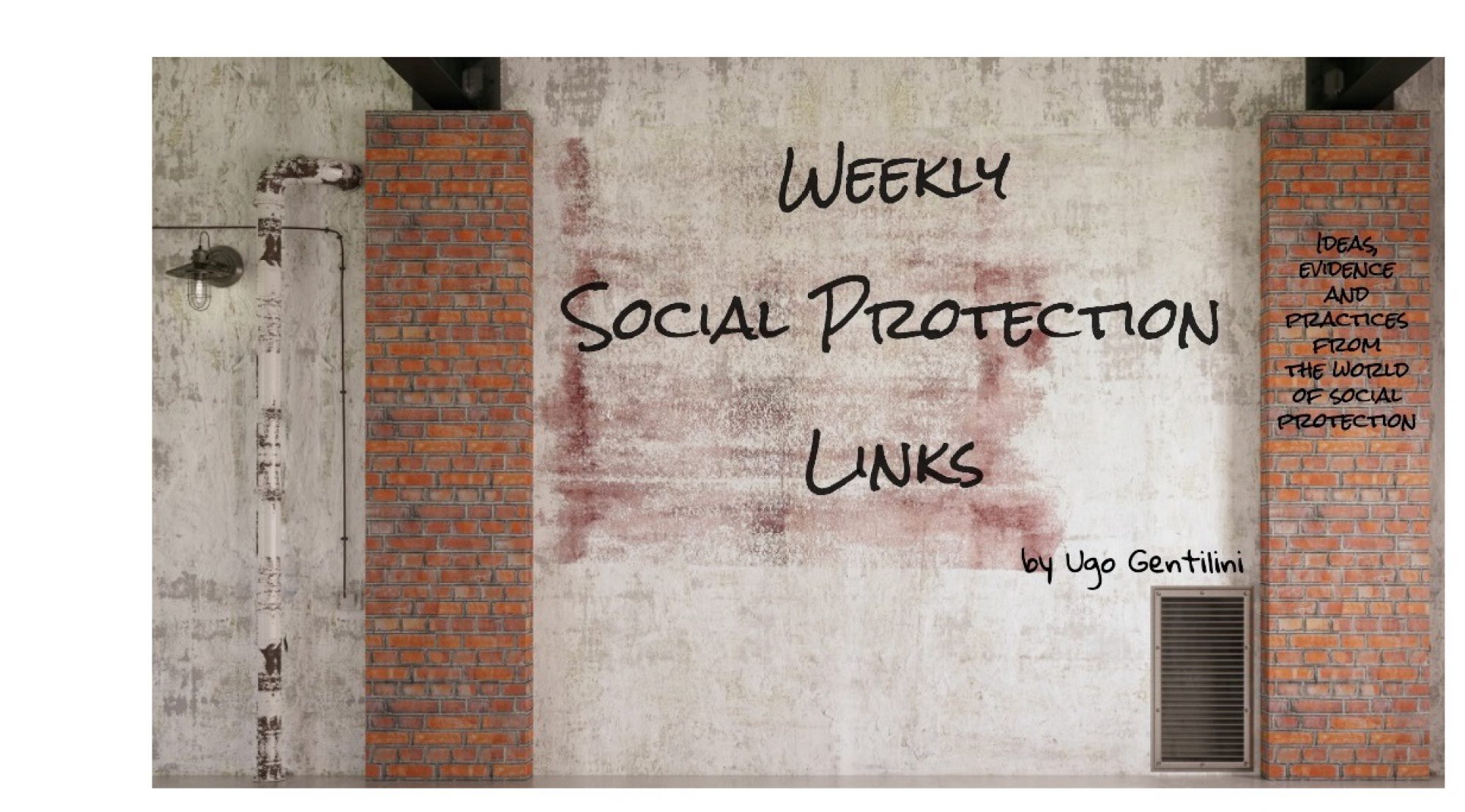
A big question: what determines “exit” from a cash transfer program? A paper by Carraro et al explores the probability of leaving the Bolsa Familia program in the Brazilian city of Pelotas. Based on data stretching 11 years (2004-2015) and averaging 56 months of benefit receipt, the authors found that in general a one-unit increase (or $0.30) in the amount received reduces the probability of exiting the program by an average of 1% — and if one of the parents is a smoker, the likelihood drops by about 30%. Program exit is chiefly associated with family characteristics and transfer size: for instance, among families receiving benefits above the average (or $42), the mother’s employment has a positive influence on leaving the program; while for participants getting benefits below the average, having a white father increases successful exit chances by 40%, which are bolstered to 47% if the father is employed.
This one is super cool: value added taxes are generally regressive, and a new paper by de la Feria and Swistak unveil a “progressive VAT” with an application to Mozambique and South Africa consumption data. Basically, the proposal would leverage real-time technology – or “the electronic tracking and matching-up of invoices in real-time” – and adapt them for compensatory cash transfers. Under this framework, “lower-income households would receive a welfare transfer to compensate for VAT charged in real-time, at the time of purchase”. While the model would increase revenues, it may also create an incentive against informal suppliers. Importantly, the elimination of time disparity between the moment when VAT is paid and when the transfer is received would reduce cash-flow costs for the poorest households and address tax refund problems. Quite promising where such technology is in place!
Let’s remain in Africa, do cash transfer work in the presence of barriers like geographical remoteness and high transportation costs to reach markets? A study from Malawi by Aggarwal et al provided households in 150 villages with a large one-off transfer of $500 (more than then the annual household expenditures); others were provided access to input fairs organized in local schools; and other group got both. The analysis found that the input fair alone had no effect on purchasing chemical fertilizers, the provision of “cash only” increased spending on such input by 27%, while the combined interventions doubled such use to 50%.
News from Asia: Deng et al have a great paper quantifying the labor supply, welfare and fiscal implications stemming from three alternative pension reforms in China. These include (i) keeping same benefit rules but increasing the eligibility age from 60 to 65; (ii) keeping eligibility at 60 years, but proportionally lowering pension benefits so that the pension program’s budget is the same as under Reform (i); and (iii) increasing eligibility to 65 and simultaneously increasing pension benefits. Results? Reforms (i) and (ii) are better fiscally and slightly increase labor supply, but with some loss in skills (h/t Pip O’Keefe).
The new OECD aid figures are out! In 2023, ODA rose by 1.8% reaching a record high $223.7 billion (albeit still standing at only 0.37% of donors’ combined GNI). The increase was in part driven by humanitarian aid, while spending on in-donor refugee costs represents 13.8% of the total (for seven countries, in-donor refugee costs represents more than a quarter of their ODA). Bonus: “aid organizations are enormously effective”, says CHA’s Sudhoff in an interview.
Speaking of advanced economies, a paper by Lyu et al measures the effects of the pandemic Expanded Child Tax Credit and Pandemic Stimulus Checks programs on child welfare in the US. Specifically, the analysis investigates whether payments received during pregnancy affect birthweight, gestational age and fetal growth. Key result? A “… $1000 increase in income… had virtually no statistically significant, clinically important, or economically meaningful effect on infant health” (p.25).
And in Europe, an article by Nesti et al explores the political economy of piloting basic income programs, including two local-level tests like B-MINCOME in Barcelona and Weten Wat Werkt in Utrecht. The authors noted while those experiences had a shared starting goal (i.e., to simplify activation processes and reduce administrative burdens on claimants), they shed light on the different power of local policymakers (higher in the Dutch case) and led to different interinstitutional dynamics (in Barcelona, local governments were given more space for experimentation than in the Netherlands). Bonus: check out Herschander’s musings about the future of the 200+ basic income pilots launched in the US.
A set of short resources: Aleksandrova et al identify four entry points for integrating social protection into the Green Climate Funds, with the articulation of such channels conveniently summarized in their table 3 (p.9); SASPP produced a handy infographics on the impacts of adaptive social protection in the Sahel (h/t Deborah Kirby); and Greenslade penned a pugnacious critique of the World Bank’s approach to social protection.
And let’s conclude with three juicy events: if you are in Copenhagen on April 30, there is a half-day seminar on “supporting welfare state expansion in the Global South: What role for development aid?”; registration is now open for the conference titled “social justice and development in a polarizing world” (London, June 26-28); and a call for paper is out for an intriguing symposium on “cash transfers and guaranteed minimum income programs” (Sept 9-10 in Prague, h/t Kathleen Beegle).
p.s. links will pause for a week, back promptly on Friday April 26.
